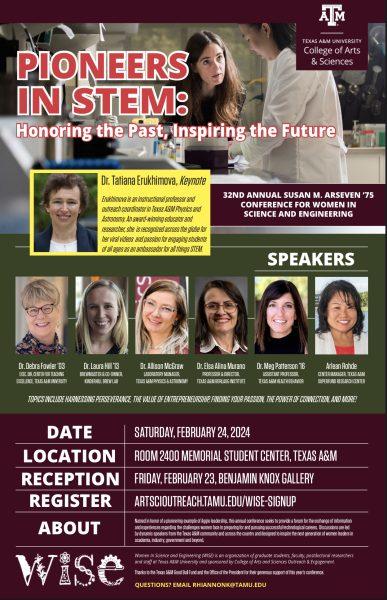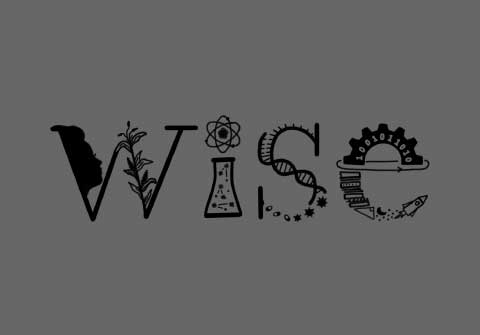On Saturday, Feb. 24, the 32nd annual Susan M. Arseven ’75 Conference for Women in Science and Engineering will present many speakers, activities and opportunities to attendees.
The conference will be hosted in Memorial Student Center room 2400. Available until Feb. 22, event registration is $50 for attendees and $35 for students. The fee will include a pre-conference reception on Friday, Feb. 23, at the Benjamin Knox Gallery at 405 University Dr E.

The conference looks to educate attendees and provide resources to women pursuing a STEM degree. During the conference’s activities, several awards, networking opportunities and scholarships will be presented.
The conference will be hosted by the College of Arts and Sciences and Women in Science and Engineering, or WISE.
Civil engineering doctoral candidate Natalie Coleman is the president of WISE.
“WISE was founded after a group of female graduate students were worried about the retention rate that was happening in their chemistry program and wanted to find out why certain students were dropping out,” Coleman said.
Coleman said the organization is open to all science and engineering students of every gender identity. Coleman said WISE focuses on connecting students with peers, scholarships and networking opportunities.
“I got involved in WISE to find community, but now, as the president of WISE, I want us to build that community for others,” Coleman said.
Experimental physics and engineering professor René Elms, Ph.D. said despite an emergence of programs encouraging women to enter STEM fields in the 1980s, she was often surrounded by only men during her education.
“I remember growing up that I was the only girl in the program, but as I got older, there seemed to be more and more women,” Elms said.
Elms said many of her female mentors would warn her, “sometimes it’s a fight.”
“I have had scenarios where I was discriminated against because I was a female, and I wasn’t allowed certain opportunities by individuals, not by groups of people,” Elms said. “As a junior high student, I was doing independent research, and I had several researchers that I asked them for equipment or use of their equipment, and they very specifically didn’t want me in the lab because I was a female.”
Elms said women in STEM face discrimination because of harmful stereotypes that they lack the analytical capabilities to understand high-level subjects.
Forensic science sophomore Sujae Lee said she faces these sexist stigmas in her education. While attending classes, Lee said she has experienced less than a quarter-to-a-third of women represented.
“Once, when I tagged along with my friend in their chemical engineering class, I ended up being one of three girls in a large classroom, and I wasn’t even in that class,” Lee said. “Walking into this large class and being one of the only girls, you definitely notice it and notice that you stand out.”
With a lack of female peers in classrooms, the conference looks to address this gap in the field.
“It’s to build skills of how to find a mentor, network, teach others about STEM or take the skills that you learned in the classroom and turn it into a business,” Coleman said. “A great event to expand what you currently know and open up to new possibilities.”
Coleman said topics include entrepreneurship, starting a small business, communications, networking and listening to others’ STEM journeys.
Even if you’re not a woman in STEM, Coleman said the event is open to everyone.
“Even if STEM is not your field, the conference gives you the opportunity to really know what’s out there … it can broaden your overall perspective,” Coleman said. “Not only does it inspire women to go through the STEM journey, but it also provides men an idea of what success looks like for women in STEM and how they can best support and advocate for women in STEM.”










